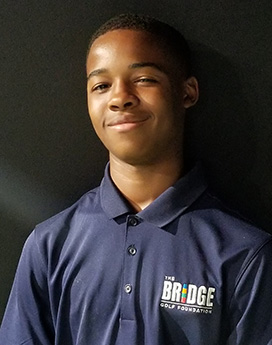 Every month, we are interviewing one of the young men in our program. This month we meet Jacob Porter Scarborough, a 13-year-old who is new to the program. He recently fielded some questions from Executive Director and Co-Founder Farrell Evans.
Every month, we are interviewing one of the young men in our program. This month we meet Jacob Porter Scarborough, a 13-year-old who is new to the program. He recently fielded some questions from Executive Director and Co-Founder Farrell Evans.
FE: Who have been the biggest role models in your life?
JS: Since I’m a young man, the most important role models in my life have been the men in my life: my dad, my godbrother and my uncles. I have learned so much from them, from the way they dress and how they carry themselves. They are always neat. They always tell me to handle my responsibilities and take care of business.
FE: How do you take care of business?
JS: For me, it’s just going to school and getting my education and getting the best grades possible. It’s going to come in handy in the future, when I’m in college. I want to have a successful career.
FE: What are your career goals?
JS: I want to be a marine biologist and study underwater animals and be excellent at technology.
FE: How do you think being a part of The Bridge Golf Foundation will help you meet this goal?
JS: You have to be good at math and science to become a marine biologist. The STEM program helps prepare me for those areas.
FE: Over the years, you have performed with a youth chorus in the city. How was that experience?
JS: I sang in the Young People’s Chorus of New York City. Earlier this year we sang at a gala at Lincoln Center. I’m a baritone.
FE: What do you do in your spare time?
JS: Besides playing video games, I like to draw stuff from images I see in books or on the street.
FE: You joined The Foundation this summer. How has the experience been so far?
JS: All of the students here get along really well. There are no mean people here. There are amazing tutors and teachers. I love going to the golf course on Thursdays at Dunwoodie. I enjoy working on my game. I’m pretty good from 100 yards in. Club Getaway was also fun. We did everything from rock climbing to zip lining.
FE: What do you like about living in New York?
JS: Everything is close and culturally it’s great. In my building in Harlem, there are Asians, Africans, Spanish and every other group. There are no racial problems in our building. It’s definitely a multicultural environment.
FE: Have you personally experienced racism in your life?
JS: Once when I was in elementary school, I was wearing a white costume in a play and a white kid told me that the costume and my skin color didn’t match. I don’t know if that qualifies as racism, but it felt that way to me.
FE: As a young male of color, do you think that society is going to improve around race relations?
JS: From what I’ve seen with police violence in the past few years, I’m not really sure if society is going to change as a whole. I think that individually we can make changes in our own lives that could positively influence others.
FE: In Character Education, you’re reading a book called “The Pact: Three Young Men Make a Promise and Fulfill a Dream.” Tell us about it.
JS: It’s about three successful black men who came from poor backgrounds, and it’s how they made a pact to build their lives together.
FE: Why is our mission to improve outcomes for young men of color so important?
JS: For growing black men, sometimes people judge you on the way you look. You could be the smartest guy and they will still reject you because of the way you look. So I think it’s important that we have organizations like The Bridge and Eagle Academy that can show you what’s possible with hard work and a good education.
FE: Do you think you’ll be a role model one day?
JS: Hopefully. I’m progressing each day. I haven’t gotten to the point where I know how I’m going to get to where I want to go, but I’m working on it.